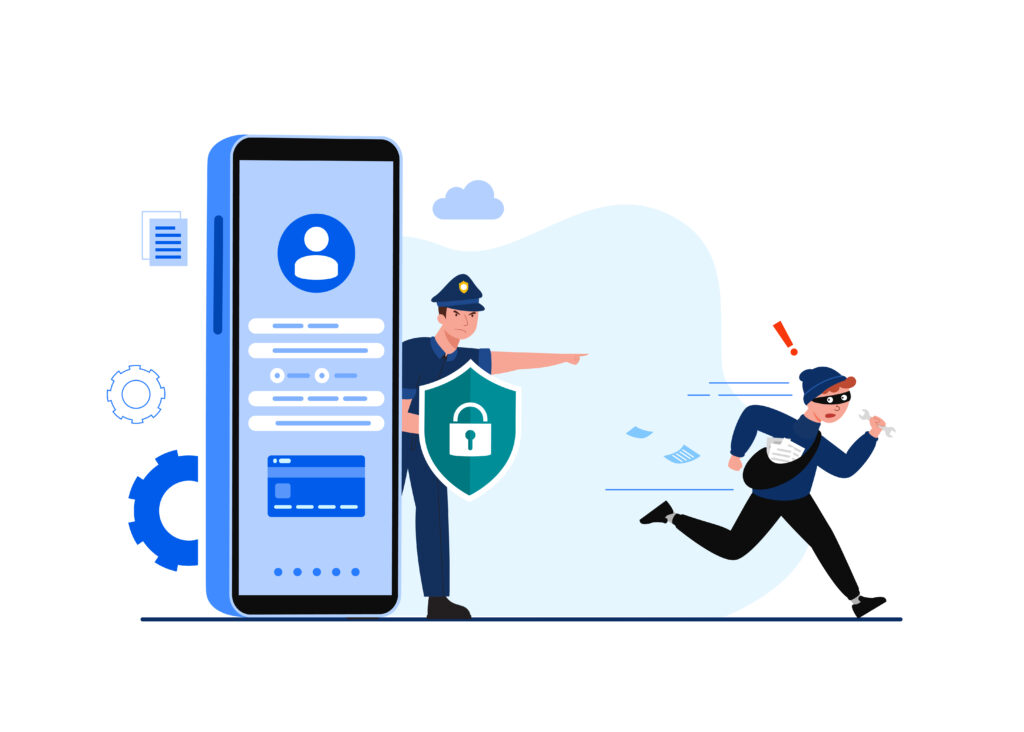I’m old enough to remember when Yahoo and Hotmail were the big players in the early days of cloud computing. Sure, you only had access to an email account, but it was enough for most people at the time. Then came Google, and along with Microsoft and Amazon, they’ve dominated cloud computing in recent years.
The historical pattern suggests that big tech is where most people tend to go to store their data. So why are executives and high earners moving away from tech giants like Google, Microsoft, and other tech giants? In this article, we’ll look into the concerns fuelling this shift, a few notable security incidents in recent years, and finally briefly mention a few top alternatives for executive and high earners to better safeguard their privacy. So let’s get to it!
Jump To:
Toggle
The Importance of Digital Security for Executives and High Earners
Personal, financial, and other sensitive data is becoming like a new currency. Its value can be exchanged, monetized, and be used an asset. With this in mind, executives and high earners typically have more to lose should their data becomes lost or ends up in the wrong hands.
With this heightened risk, executives and high earners are usually targets for cybercriminals due to their wealth and influence. The loss of personal data can lead to substantial financial losses, an erosion of stakeholder trust, damage to strategic partnerships, and damage to their reputation and public image.
Why are executives and High Earners Leaving Big Tech?
It appears that everybody’s using giants like Google and Microsoft, however these platforms have shortfalls that could be dealbreakers for executives and high earners. These individuals tend to be more focused on their privacy, and don’t care to have big brother looking over their shoulders, because they potentially have more to lose. Let’s now take a look at some ways the tech giants fall short.

Security Concerns
High-Profile Breaches
The big tech companies, including Google and Microsoft, have faced their share of cybersecurity incidents in recent years. These high-profile and often sophisticated cyberattacks have raised serious concerns about the security of sensitive data stored on their platforms, and show, quite vividly, that these giants are not immune to attacks.
Large Attack Surface
Bigger isn’t always better, and this is certainly the case with these huge tech companies. The sheer size and complexity of their systems make these companies attractive targets for cybercriminals. Companies like Google, Microsoft, and Amazon have vast networks, with numerous interconnected services, and millions of users. This creates a large attack surface for cybercriminals, increasing the risk of attacks.
Data Loss and Ransomware
When cyberattacks do happen, they can spell deep trouble for the owners of the data that is stored on these services. Significant data loss, service disruptions, financial losses are just few dire consequences of an attack. Not to mention, ransomware attacks, where cybercriminal encrypt data and demand that you pay them a ransom before they release it. This is a serious and growing concern for businesses of all sizes.
Data Privacy Concerns
Your privacy should always be a top priority when it comes to where you store your information. It’s your right to be in full control of what can and cannot be shared. Let’s take a look at some major concerns of data privacy by big tech firms.
Data Collection and Usage
Both Google and Microsoft and other big tech firms collect huge amounts of user data as part of their business model. They use this data for a lot of different purposes, including targeted advertising, product improvement, and research.
While this data collection generally benefits users, there are serious concerns regarding the sheer amount of personal data is collected and how it’s used. The data collected includes personal details, behavior tracking, and extensive logging of user activities.
For some executives, this level of surveillance is unacceptable, as it could expose sensitive business strategies and personal information that could potentially be used against them. This is a risk many of them aren’t willing to take, hence the reason they consider moving away from big tech to find alternative options, where they believe they may have better control over the security of their data.
Lack of Transparency
Big tech aren’t always transparent with what they do with your personal data. As a result, users may not fully understand how their data is being collected, used, and shared by these companies. This lack of transparency could cause distrust among users, and lead people to alternative secure solutions. Alternative secure solutions may provide greater transparency and control over your data, and allow you to better understand and manage how your information is collected, stored, and used.

Further Reasons For Leaving Big Tech
Need for Customized Solutions
- Generic Services: The one-size-fits-all approach of major tech platforms may not meet the specific needs of high-profile users, who may need more customized solutions that cater to their specific privacy and security needs.
- Specialized Services: Many emerging tech solutions and platforms offer specialized services that provide enhanced security features, such as end-to-end encryption and secure data storage, which are more appealing to executives and high earners looking to safeguard their communications and sensitive data.
Desire for Decentralization
More and more people are getting into decentralized technologies like blockchain and cryptocurrency, sparking a growing interest in having more autonomy and control over their digital assets. By removing reliance on centralized middlemen like Google and Microsoft, decentralized solutions can offer improved security and privacy.
Search for Competitive Advantage
Executives and top earners are always on the lookout for ways to get ahead. By adopting more secure and creative solutions, they can stand out from the competition, boost their operational efficiency, and strengthen their overall security, a definite advantage for anyone.
The Role of Regulatory Compliance and Legal Considerations
Protecting Personal Brand and Professional Reputation
Everyone want to have a good name, especially online, and securing a positive legacy is something most executives with a public image strive for. If there is even a single breach, it can have devastating consequences, and can tarnish someone’s public image permanently. Secure solutions offer protections that help to better safeguard an executive’s personal and professional reputation.
Ensuring Financial Security Through Technology
High earners and executives usually conduct high-stake financial transactions. It goes without saying that a lot of these transactions need to be conducted with the utmost secrecy and security, at least initially. Technological tools such as advanced encryption, and other security measures help to protect sensitive financial information from unauthorized access and cyber theft.

Recent Issues Faced By Big Tech
Here are a few real examples (believe me, there are many more) of privacy issues faced by big tech companies. They affect a wide range of products and services. Each case had a significant impact on public perception and led to calls for stricter data protection and privacy regulations globally.
Google
Google Cloud Platform Misconfigurations
This is an ongoing issue where misconfigurations affect Google Cloud Platform (GCP) users, leading to various security issues. These problems typically arise when cloud storage buckets or instances are not properly secured, which allows unauthorized access to sensitive information, including personal details and company secrets. There were instances where databases that should have had adequate access restrictions in place, ended up being exposed, revealing sensitive health data and confidential company information.
Google Street View Privacy Concerns
In May 2010 Google came out and admitted that its Street View vehicles, which were taking photographs around the world, had also been collecting data from unsecured Wi-Fi networks, including personal emails and passwords. This incident raised worldwide concerns over privacy and led to legal action and fines against Google in multiple countries.
Microsoft
Microsoft Azure Misconfigurations
Similar to its competitors like Google, Microsoft Azure, which is Microsoft’s cloud computing platform, has an ongoing issue that has seen data belonging to customers being exposed due to customer misconfigurations. These usually involve the storage services like Azure Blob Storage, where sensitive data was left unprotected and publicly accessible without proper authentication controls. One such example was the exposure of 250 million Microsoft Customer Service and Support records in January 2020, which was due to misconfigured security rules in an Azure server.
Cosmos DB Security Flaw
On August 2021 a security flaw in Microsoft’s Azure Cosmos DB database service potentially exposed the accounts of thousands of companies. The vulnerability allowed the viewing, changing, or deletion of databases owned by other entities without authorization. Microsoft fixed the flaw immediately after it was discovered by security researchers. The incident, like many others, highlighted potential risks in multi-tenant cloud environments.
Windows 10 Data Collection
Since 2015 Windows 10 has been criticized for the amount and type of data it collects by default. This included voice data, keystrokes, search habits, location data, and more. Despite Microsoft providing explanations and some level of user control over data collection, concerns about privacy and the lack of transparency persisted.
Just FYI, if you use a Windows machine and want to disable this option, do the following: Open Start Menu>Select Settings>Click on Privacy & security>Select Diagnostics & feedback on the left sidebar>Under “Diagnostic data”, choose Basic.
Amazon
AWS CodeSpaces Incident
AWS’s CodeSpaces suffered a significant and fatal security breach that forced the service to shut down in June 2014. It started with a DDoS attack, but this was just the beginning, then the attacker gained access to AWS EC2 panel and deleted customer data to extort the company. When CodeSpaces attempted to regain control, the attacker deleted most of their data, backups, machine configurations, and offsite backups, demonstrating the catastrophic impact of not securing administrative credentials.
This incident could’ve been started much earlier, maybe through a phishing attempt to gain administrative login credentials. This is why it’s so important to implement multi-factor authentication to sensitive accounts.
AWS ElasticSearch Service Exposures
There has been quite a lot of incidents involving AWS’s ElasticSearch “instances” (instances are virtual computers or machines that run in AWS’s cloud environment). This is where sensitive data was exposed due to misconfigured security settings. These have included cases involving personal information, financial data, and proprietary business information. Notable incidents include exposures involving major financial services firms and media companies.
Amazon Alexa Eavesdropping
In 2019 an article in the Washington Post and other sources revealed that Amazon employed thousands of people to listen to voice recordings captured in Echo owners’ homes and offices. The workers transcribed, annotated, and fed back the recordings to help improve Alexa’s understanding of human speech. This creepy practice raised serious privacy concerns about the extent to which Amazon listens to and analyzes private conversations.
Apple
Group FaceTime Privacy Bug
Even Apple’s got their issues as well. In 2019 a bug in Apple’s Group FaceTime feature allowed callers to hear the audio of the person they were calling, even if the person hadn’t answered the call yet. This privacy flaw led to Apple temporarily disabling the Group FaceTime feature and highlighted potential risks in even well-regarded privacy-focused products.
Facebook
Cambridge Analytica Scandal
This was a major scandal in 2018 and involved the data of approximately 87 million Facebook users being improperly accessed by Cambridge Analytica, a political data analysis firm. Later known as the Facebook – Cambridge Analytica data scandal, the data was used to influence voter opinion on behalf of political campaigns, including the 2016 U.S. Presidential elections. This breach raised significant concerns about Facebook’s privacy policies and data security practices, leading to intense scrutiny and regulatory inquiries.
Facebook’s Psychological Experiment
In June 2014 Facebook carried out a psychology experiment on about 700,000 users without their knowledge to see how changing their news feeds could affect their emotions. The study focused on showing users more positive or bad posts from their friends to see how it impacted the emotions they shared in their own posts. This experiment brought up important issues about ethics and privacy because users were not told they were part of the study or that their feelings were being influenced. This led to discussions about whether social media companies should have to get clear permission before doing psychological research.
Facebook Data Sharing with Device Manufacturers
Here we go with Facebook again! In June 2018 The New York Times claimed that Facebook partnered with over 60 device manufacturers, including Apple, Amazon, BlackBerry, Microsoft, and Samsung, to share data. Over the years, these partnerships gave device makers access to a lot of personal information about users, including details about things like their friends’ relationship status, religion, and political views. This happened without users’ clear permission, going against what Facebook had said before about keeping their information private. The news caused a lot of anger and increased worries about how Facebook shares data and protects user privacy.
Benefits of More Secure Solutions
Secure solutions offer significant advantages over mainstream options:
- Enhanced Data Protection: By prioritizing end-to-end encryption and minimal data retention, these tools offer strong protection for sensitive information.
- Regulatory Compliance: Users may easily control and reduce legal risks with the help of features that are designed to comply with privacy regulations.
- Customizable Security Features: User can be able to customize security settings to match individual requirements improves both protection and usability for high earners and executives.
Conclusion
Throughout this article, we’ve seen how big tech companies fall short when it comes to protecting client privacy. The real life examples provided demonstrate quite vividly the various incidents that have occurred in recent years, and fuels the desire for executive and high earners to move away from big tech to more secure alternatives.
It should be noted, there are still many who continue to rely on the robust, scalable solutions provided by big tech, while others are moving towards alternatives that offer increased privacy, customization, and cost efficiency. The choice largely depends on the specific circumstances and strategies of individual businesses and their leadership.







